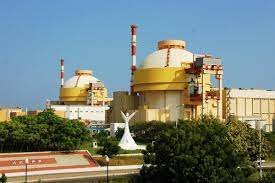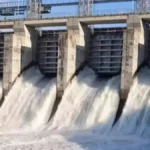India and Russia Sign Deals for Kudankulam Nuclear Plant Units
India and Russia recently solidified their bilateral relations by signing crucial agreements pertaining to the construction of new units at the Kudankulam Nuclear Power Plant in Tamil Nadu. This collaborative effort marks another milestone in the enduring partnership between the two nations, especially in the energy sector. The signed agreements specifically focus on the construction of Units 5 and 6, demonstrating a robust commitment to strengthening the strategic partnership between India and Russia in the field of nuclear energy.
The collaboration between India and Russia in the energy sector dates back several decades, with the Kudankulam Nuclear Power Plant serving as a prominent symbol of their cooperation. The signing of these agreements signifies a significant stride forward in India’s nuclear energy program, aiming to boost power generation while prioritizing clean and sustainable sources.

Why this News is Important:
Strategic Energy Partnership: The signing of agreements between India and Russia for Units 5 and 6 at the Kudankulam Nuclear Power Plant signifies the deepening of strategic cooperation between the two nations in the energy sector.
Boost to India’s Nuclear Program: This development is pivotal for India’s nuclear energy program, as it emphasizes the nation’s commitment to sustainable and clean energy sources.
International Relations and Bilateral Agreements: Understanding such collaborations is essential for aspirants preparing for government exams, as it sheds light on India’s strategic alliances and diplomatic relations.
Historical Context:
The collaboration between India and Russia in the nuclear energy sector traces back to the signing of the Inter-Governmental Agreement in 1988. The Kudankulam Nuclear Power Plant, located in Tamil Nadu, was envisioned as a collaborative effort between the two nations, aiming to bring forth a significant source of clean energy for India’s growing demands.
Key Takeaways from “India-Russia Sign Deals for Kudankulam Nuclear Plant Units”:
| Serial Number | Key Takeaway |
|---|---|
| 1. | India and Russia signed agreements for Units 5 and 6 at the Kudankulam Nuclear Power Plant. |
| 2. | The collaboration underscores the commitment to boost India’s nuclear energy program. |
| 3. | The initiative highlights the deepening strategic partnership between India and Russia. |
| 4. | It signifies the importance of international collaborations in achieving sustainable energy goals. |
| 5. | Aspirants preparing for government exams should grasp the significance of such collaborations in international relations and energy sectors. |
Important FAQs for Students from this News
Q: What is the significance of the India-Russia collaboration in the energy sector?
A: The collaboration signifies a strategic partnership between the two nations, emphasizing clean and sustainable energy sources.
Q: How does the agreement for Units 5 and 6 at the Kudankulam Nuclear Power Plant impact India’s energy security?
A: The agreement enhances India’s energy security by expanding its nuclear energy capacity.
Q: What historical context surrounds the India-Russia collaboration at the Kudankulam Nuclear Power Plant?
A: The collaboration began with the signing of the Inter-Governmental Agreement in 1988, envisioning a substantial source of clean energy for India.
Q: What relevance does this news hold for aspirants preparing for government exams?
A: Understanding international collaborations in energy and bilateral agreements is crucial for exams focusing on international relations and strategic alliances.
Q: Apart from the Kudankulam Nuclear Power Plant, are there any other areas of collaboration between India and Russia in the energy sector?
A: Yes, India and Russia have historically engaged in various joint initiatives in the energy sector, including oil, gas, and other forms of renewable energy.
Some Important Current Affairs Links

















